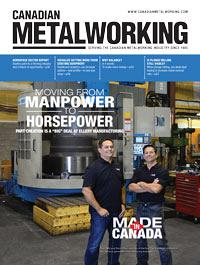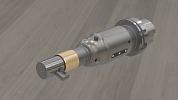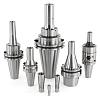Editor
- FMA
- The Fabricator
- FABTECH
- Canadian Metalworking
Moving from manpower to horsepower
Part creation is a “big” deal at Ellery Manufacturing
- By Joe Thompson
- September 5, 2016
- Article
- Made In Canada
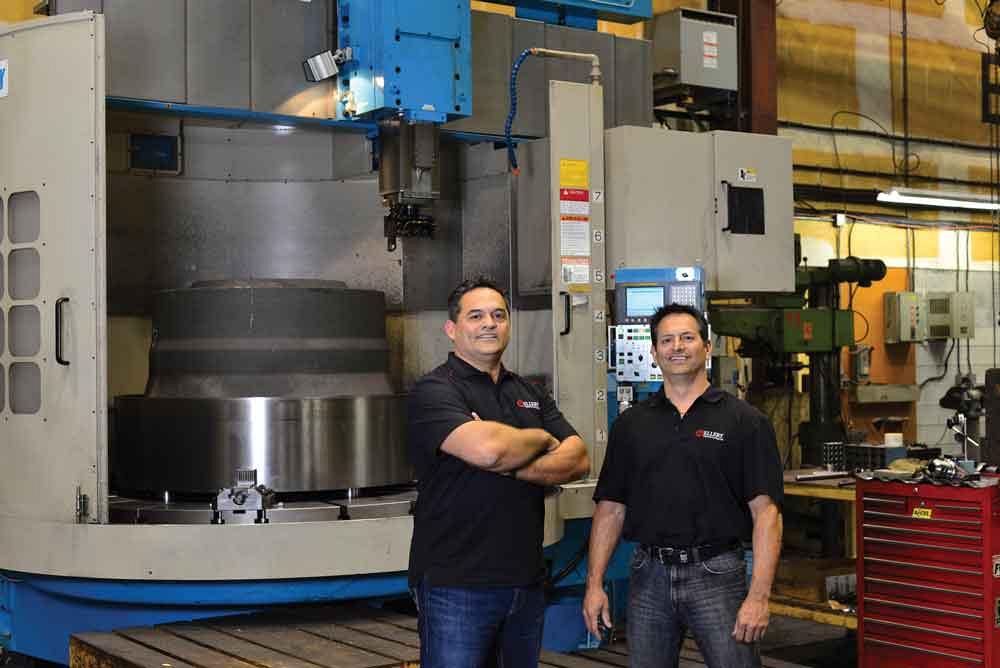
Paul (left) and David Ellery are two of the four Ellery siblings involved in this second-generation manufacturing business.
Ellery Manufacturing, Surrey, B.C., started business in 1978 like many other job shops: with conventional machine tools and conventional thinking, serving mainly the province’s resource sector. Since then the company has grown, become technologically advanced, and now produces parts for customers across numerous industry sectors.
Founder Les Ellery was a skilled worker who had grown tired of moving from job to job and finally decided to start his own manufacturing company. Today the business is run by son Paul, with siblings Nick, David, and Anne all playing a role.
“When my father started this company, we had no idea it would change our lives this way,” said Paul Ellery, vice president. “This is a family business through and through.”
The company essentially is a custom job shop with expertise and experience in building large parts for even larger projects.
“I’d say we specialize in producing large, custom parts for heavy industry,” explained Paul. “This includes everything from the gearboxes and housings used on offshore oil rigs to complete hopper assemblies for the mining industry. Essentially, as long as it fits on our [machines’] tables, we can make it.”
The manufacturing sector in British Columbia isn’t tied to one particular industry, which makes the job shop an important part of the supply chain. In addition to oil and gas and mining, Ellery Manufacturing also produces parts for the heavy construction, forestry, energy, and marine industries.
Special projects also keep things interesting around the shop, like precision machined parts for amusement park rides and components for the turning mechanism in the Canada-France-Hawaii telescope located on the summit of Mauna Kea, Hawaii.
Large-part Manufacturing
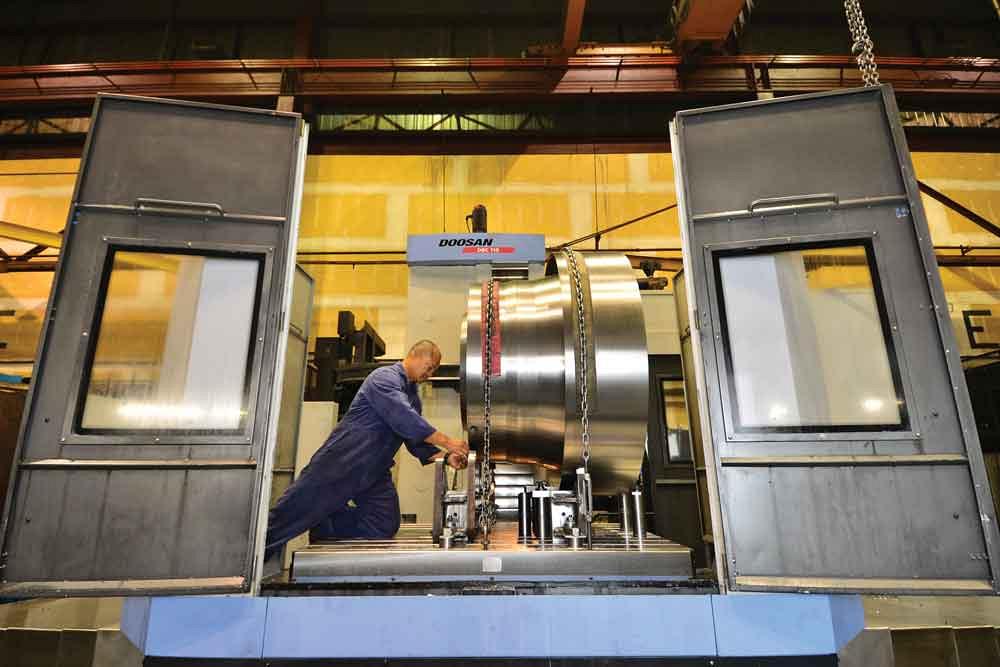
The specialty of Ellery Manufacturing, Surrey, B.C., is the production of large parts and assemblies.
The specialty of the house, however, is in the production of large parts and assemblies.
For this work the company relies on its three large horizontal boring mills, one a Toshiba and the other two from Doosan.
The largest-capacity machine, a Doosan DB130CX, has X, Y, Z travels of 2,998, 1,999, and 1,600 mm, respectively, with W-axis travel of 701 mm with full fourth-axis movement. It also can handle parts weighing up to 14,969 kg.
Along with the other two boring mills -- a Toshiba BTD200QE and Doosan DBC110 – the equipment gives the company capacity and multiple table sizes to keep up with machine demand.
“It’s definitely something we are proud of and something that we use to our advantage,” Paul said about the company’s capacity to handle large parts. “In business today, if you are able to do something that your competition can’t, then you are already one step ahead. Our table capacities on the boring mills give us that.”
It’s not just about the big equipment, either. Ellery Manufacturing also uses Haas CNC turning centres and machining centres and Okuma and O-M CNC turning centres to produce parts. Conventional machining also still takes place at Ellery, and the company even has its own in-house welding department.
The move to CNC equipment in the early ’90s was the first major evolution for the company, but it wasn’t the last.
“It’s something that shops today don’t even consider, but when we decided to move into CNC, it was a monumental shift,” said Paul. “But I knew then, and it has since become a motto around here, that we needed to change our manpower into horsepower.”
Now, some 25 years after its adoption of CNC equipment, Ellery Manufacturing is going through another technological upgrade with the installation of a manufacturing resource planning (MRP) system.
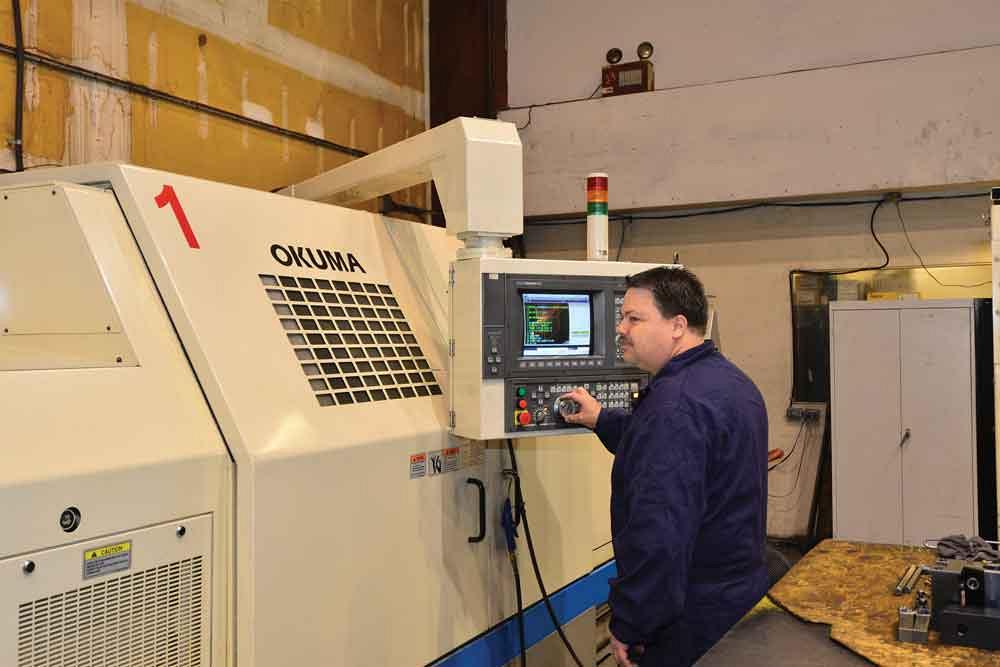
Not all work at the shop requires a horizontal boring machine with a large bed. Other work is performed on the company’s CNC turning centres and machining centres.
In late 2015, after nearly six months of preparation, the company installed E2 from Shoptech.
“When the oil and gas sector slowed down, it gave us some breathing room to get back on track with this installation,” said Nick Ellery, business development manager. “We went through a very thorough search process and finally decided on a package that we feel matches where we are currently and where we plan on being in the future.”
The software streamlines many of the company’s administrative processes, but its real strength is the information sharing it enables between management and the shop floor.
“We are much more agile now,” said Nick. “Having this type of system in place means that we can produce quotes faster, especially if Paul is out of the office, and it enables us to make changes to drawings and get them to the shop floor much faster.”
The company also uses the collected data to analyze material costs, project hours, vendor costs, employee performance, and project scheduling.
“This install was a long, arduous process, but we are now starting to see the benefits of it,” said Nick. “It lets us use the knowledge and data that we have been collecting for almost 40 years to influence the work we are doing now.”
“If we built a gearbox assembly a few years ago and we get an order for a similar one, we can now access that information on the computer very quickly, which helps us get quotes out faster and eventually get the build started faster,” explained Paul.
The MRP implementation is just one of several upgrades that the company has implemented to prepare itself to handle a wider variety and higher volume of work from industry markets that it doesn’t currently serve.
Shop Operation
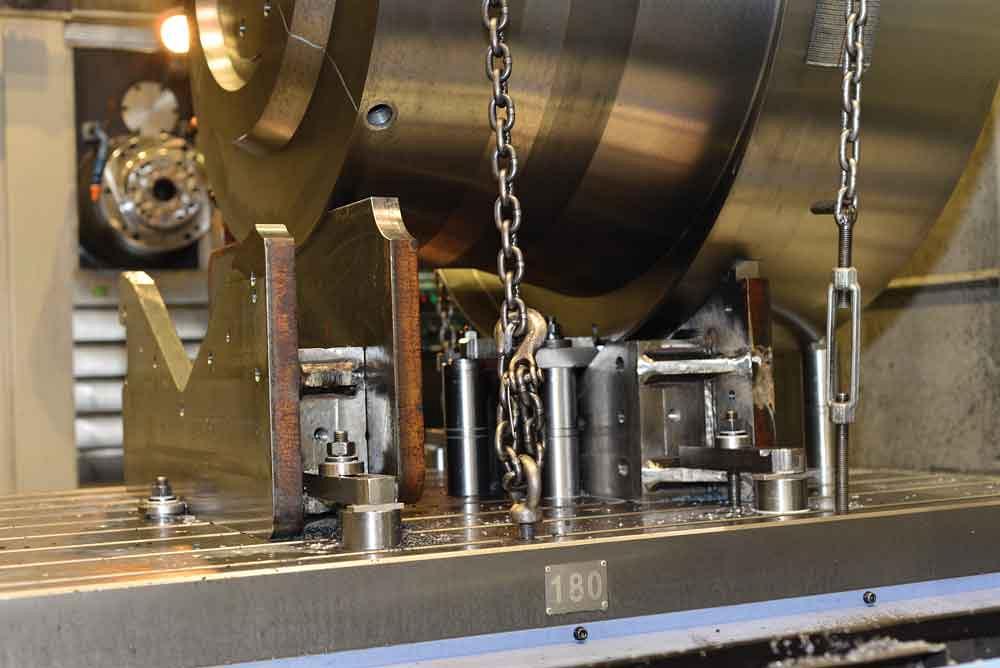
Reducing setup time while maintaining safety is important, especially when machining large, heavy parts.
Ellery Manufacturing may be a job shop, producing parts for different industries every day, but that doesn’t mean it is limited to this type of work. Paul describes himself as a problem-solver, and it’s this attitude that keeps the work coming into the shop.
Because job sizes and complexity vary, it’s important to have flexibility. While the company does some high-volume work, typical lot sizes are small. The company can easily produce a lot size of one to dozens or even hundreds.
“When you run a manufacturing company these days, you have to be smart about how you allocate your resources,” said Paul. “We know we can’t tie up all of our machines on one project while ignoring other business. You have to understand your capacity really well to know what jobs can be run and also when they should be run.”
With a relatively small staff – usually around 20 workers – the company puts an emphasis on skill. The Ellerys look for workers who know equipment, but also are team players that enjoy the business of making things.
“Give me a good person that enjoys coming to work every day and I can make a good machinist,” said Paul. “The important thing is that they come in and want to help get our projects finished and out the door on time and with the highest quality possible.”
In fact, it’s this dedication to quality that has led the company to have its own in-house welding capability. Nearly 100 per cent of projects requiring fabrication are fitted and welded in-house, with the work being checked by the company’s welding supervisor.
“We much prefer to run as many of the processes in-house as we can,” said Paul. “Basically, all we try to outsource is forming work, heat treating, and material testing.”
Ellery Manufacturing even has achieved certification for controlled goods handling.
In May of this year the company was certified to take part in the Canadian government’s Controlled Goods Program.
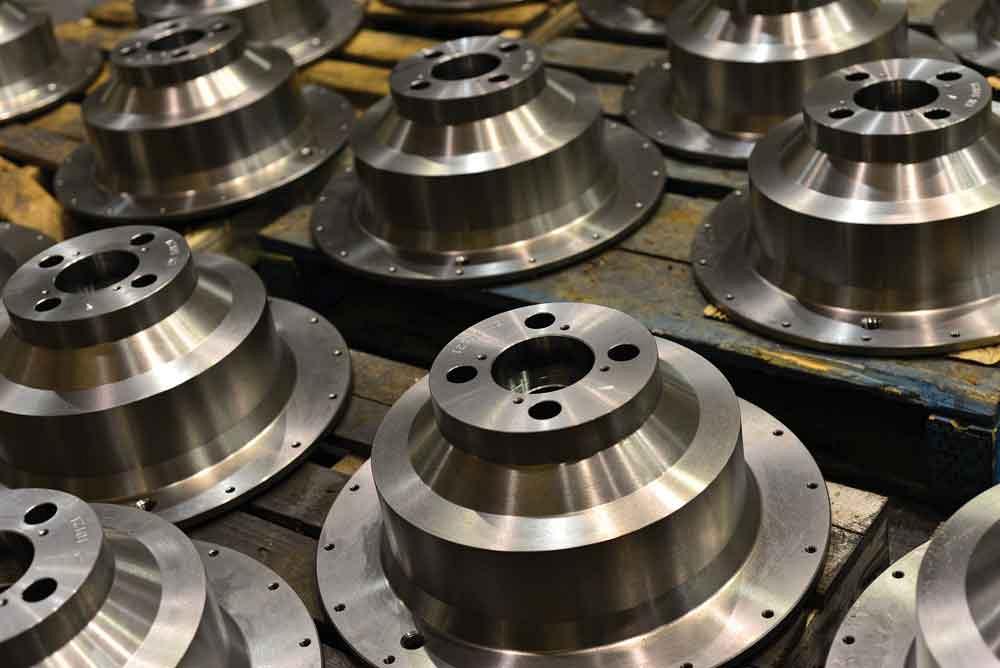
Ellery Manufacturing produces parts for the oil and gas, mining, heavy construction, forestry, energy, and marine industries.
This move opens the door for machining and fabricating work in the defence and aerospace sectors.
“If we hire the right people and put them in a position to succeed, then the quality should take care of itself,” said Paul. “When people come to work and care about what they are doing, you end up with a much higher-quality product.”
Quality is important at Ellery. It’s why the company moved into the CNC world, it’s why it installed an MRP system, and it’s why the family is sure they will be successful as they approach their 40th anniversary.
Editor Joe Thompson can be reached at jthompson@canadianmetalworking.com.
Ellery Manufacturing, 604-882-9122, www.ellerymfg.com
About the Author

Joe Thompson
416-1154 Warden Avenue
Toronto, M1R 0A1 Canada
905-315-8226
Joe Thompson has been covering the Canadian manufacturing sector for more than two decades. He is responsible for the day-to-day editorial direction of the magazine, providing a uniquely Canadian look at the world of metal manufacturing.
An award-winning writer and graduate of the Sheridan College journalism program, he has published articles worldwide in a variety of industries, including manufacturing, pharmaceutical, medical, infrastructure, and entertainment.
subscribe now


Keep up to date with the latest news, events, and technology for all things metal from our pair of monthly magazines written specifically for Canadian manufacturers!
Start Your Free Subscription- Industry Events
MME Winnipeg
- April 30, 2024
- Winnipeg, ON Canada
CTMA Economic Uncertainty: Helping You Navigate Windsor Seminar
- April 30, 2024
- Windsor, ON Canada
CTMA Economic Uncertainty: Helping You Navigate Kitchener Seminar
- May 2, 2024
- Kitchener, ON Canada
Automate 2024
- May 6 - 9, 2024
- Chicago, IL
ANCA Open House
- May 7 - 8, 2024
- Wixom, MI













